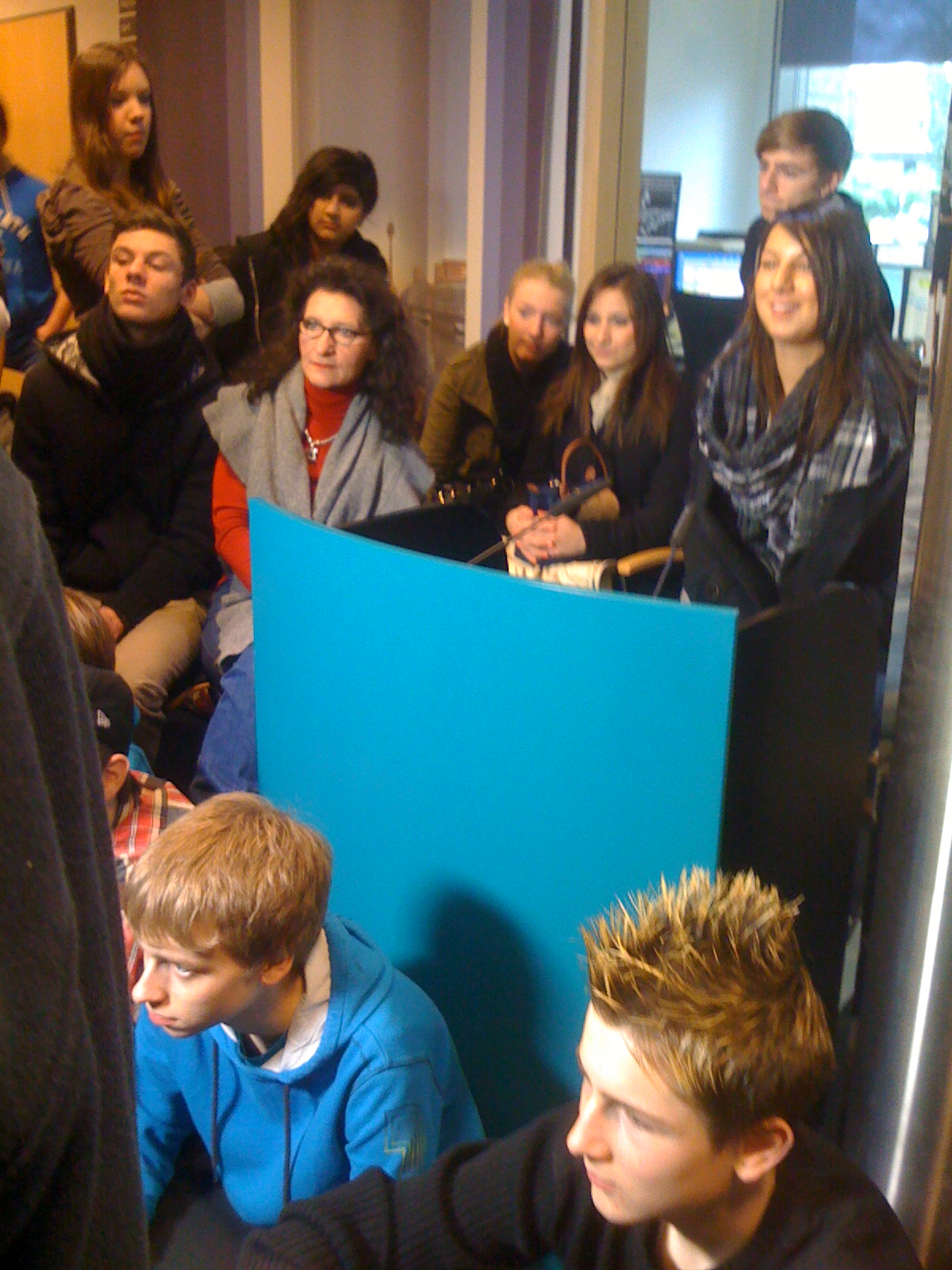
Gabriele Thimm in red sweater with some of her students.
The anniversary of Kristallnacht has always been significant for our family, but this year will have an unexpected layer of meaning.
The "Night of the Broken Glass" is the name given to the two-day rampage in November 1938 that saw Jewish synagogues, business and homes looted, burned and destroyed. Hitler's Nazi government sanctioned the violence, then fined Jewish people $400 million and required that Jewish shop owners pay for the damage themselves.
Kristallnacht's brutality and the government's subsequent actions convinced my grandfather Max, who lost his hearing and the unrestricted use of his right arm fighting for Germany during World War I, to relinquish his deeply held conviction that the increasing legal isolation and violence being inflicted on the nation's Jewish community eventually would pass.
Fortunately, he found a destination for his two boys.
It came in the form of the Kindertansport, a program created by the British government in response to Kristallnacht to give refuge 10,000 Jewish children ages 4 to 17 from Germany, the then-Czechoslovakia, Austria and Poland.
My grandmother had a cousin in England who made the necessary arrangements, and two spots were set aside for my father and uncle.
They were 5 and 7 years old, respectively.
Their children's acceptance into the program meant my grandparents had to send their sons away to save them. They did so, not knowing the woman who would take them They did so, unsure if they would ever see their boys again.
My father left several weeks after my uncle and days after having had his appendix removed.
My grandfather had taken his ailing son from doctor to doctor throughout Essen-Steele, the town where our family had lived for five generations and nearly 150 years. None would operate on the boy because he was Jewish.
Grandpa Max finally convinced a non-Jewish doctor to perform the procedure in my great-grandfather's home that doubled as an office. Remarkably, my grandparents got out of Germany in 1940, after the Second World War had begun, and reunited with their sons in the United States.
Although that branch of our family escaped, many other relatives did not.
My great-grandfather and namesake Joseph, the family patriarch who was deported to Theresienstadt in 1942 and later murdered in Auschwitz, was among them. My great-uncle Rudolf, his wife Magarete and their children Klara and Klaus-Martin, were some of the others.
Which brings us to this year's anniversary.
About three weeks ago I received an email from Gabriele Thimm, a teacher in Essen. Several years ago she organized a memorial for the town's Jewish community, she said. Students presented Essen's Jewish history. Parents donated a stone in memory of Klaus-Martin, his parents and sister in front of my great-grandfather's house.
This year, Gabriele was coordinating another event on November 9 that will include stops at the homes of three Jewish families who used to live in Essen. My great-grandfather Joseph's house is one of them.
"I think, it's our responsibility to teach the children/pupils about the German history in the time of National Socialism (Hitler) and the history of the Jews in Germany," Gabriele wrote.
We will not be able to attend the event, but we have sent a statement to be read and pictures to be projected on a wall of the house and accompanied by music.
Kristallnacht will always be the Night of the Broken Glass.
Holding a memorial ceremony cannot undo the atrocities that happened to ours and so many other families.
But it can help heal the wounds they caused.
It can help give Essen's young people a full understanding of their town and country's history.
And it can be a part of helping those children grow into adulthood with the knowledge that what took place there need not do so again should they, like their teacher and parents, find within themselves the resolve to act with courage, decency and humanity.
This post was originally published at http://www.kellylowenstein.wordpress.com.